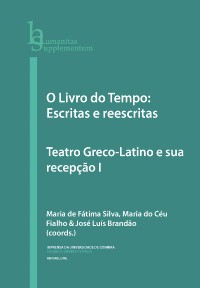Please use this identifier to cite or link to this item:
https://hdl.handle.net/10316.2/40903| DC Field | Value | Language |
|---|---|---|
| dc.contributor.author | Dinucci, Aldo Lopes | |
| dc.date.accessioned | 2016-12-30T10:34:08Z | |
| dc.date.accessioned | 2020-09-08T13:17:49Z | - |
| dc.date.available | 2016-12-30T10:34:08Z | |
| dc.date.available | 2020-09-08T13:17:49Z | - |
| dc.date.issued | 2016 | - |
| dc.identifier.isbn | 978-989-26-1277-5 | |
| dc.identifier.isbn | 978-989-26-1278-2 (PDF) | |
| dc.identifier.uri | https://hdl.handle.net/10316.2/40903 | - |
| dc.description.abstract | In this paper, we will see, from Epictetus’ reflections about the tragic and from Seneca’s Medea, how the stoic conceptions of these philosophers dilute the tragic destroying its three fundamental principles: that human actions follow divine decrees, that humanity plays a special role in the world, and that human actions can alter the balance between human and divine order, provoking a reaction from divine justice. | eng |
| dc.description.abstract | Nesse artigo, partindo das reflexões de Epicteto sobre o trágico e da Medeia de Sêneca, veremos como as concepções estoicas desses filósofos diluem o trágico destruindo seus três princípios fundamentais: que as ações humanas sigam decretos divinos infalíveis, que a humanidade cumpra um papel especial no mundo, e que as ações humanas possam alterar o equilíbrio entre a ordem humana e a divina, provocando uma reação da justiça divina. | por |
| dc.language.iso | por | - |
| dc.publisher | Imprensa da Universidade de Coimbra | por |
| dc.publisher | Annablume | por |
| dc.relation.ispartof | http://hdl.handle.net/10316.2/40883 | por |
| dc.rights | open access | - |
| dc.subject | Tragedy | eng |
| dc.subject | Stoicism | eng |
| dc.subject | Seneca | eng |
| dc.subject | Epictetus | eng |
| dc.subject | Tragédia | por |
| dc.subject | estoicismo | por |
| dc.subject | Sêneca | por |
| dc.subject | Epicteto | por |
| dc.title | Sêneca, Epicteto, Medeia e a dissolução do trágico | por |
| dc.title.alternative | Seneca, Epictetus, Medea and the dissolution of the tragic | eng |
| dc.type | bookPart | por |
| uc.publication.collection | Humanitas Supplementum | por |
| uc.publication.firstPage | 331 | - |
| uc.publication.lastPage | 340 | - |
| uc.publication.location | Coimbra | por |
| dc.identifier.doi | 10.14195/978-989-26-1278-2_22 | - |
| uc.publication.section | Teatro Latino | por |
| uc.publication.digCollection | PB | por |
| uc.publication.orderno | 22 | - |
| uc.publication.area | Artes e Humanidades | por |
| uc.publication.bookTitle | O livro do tempo: escritas e reescritas: teatro greco-latino e sua recepção I | - |
| uc.publication.manifest | https://dl.uc.pt/json/iiif/10316.2/40903/205132/manifest?manifest=/json/iiif/10316.2/40903/205132/manifest | - |
| uc.publication.thumbnail | https://dl.uc.pt/retrieve/11072357 | - |
| uc.publication.parentItemId | 54662 | - |
| uc.itemId | 69041 | - |
| item.fulltext | With Fulltext | - |
| item.grantfulltext | open | - |
| Appears in Collections: | O livro do tempo: escritas e reescritas: teatro greco-latino e sua recepção I | |
Files in This Item:
| File | Description | Size | Format | |
|---|---|---|---|---|
| se_neca__epicteto__medeia_e_a_dissoluc_a_o_do_tra_gico.pdf | 574.36 kB | Adobe PDF |  |
Items in DSpace are protected by copyright, with all rights reserved, unless otherwise indicated.
